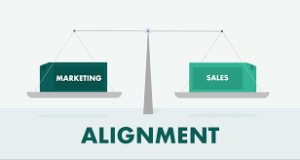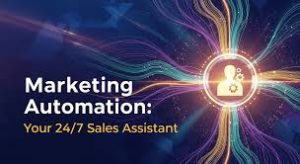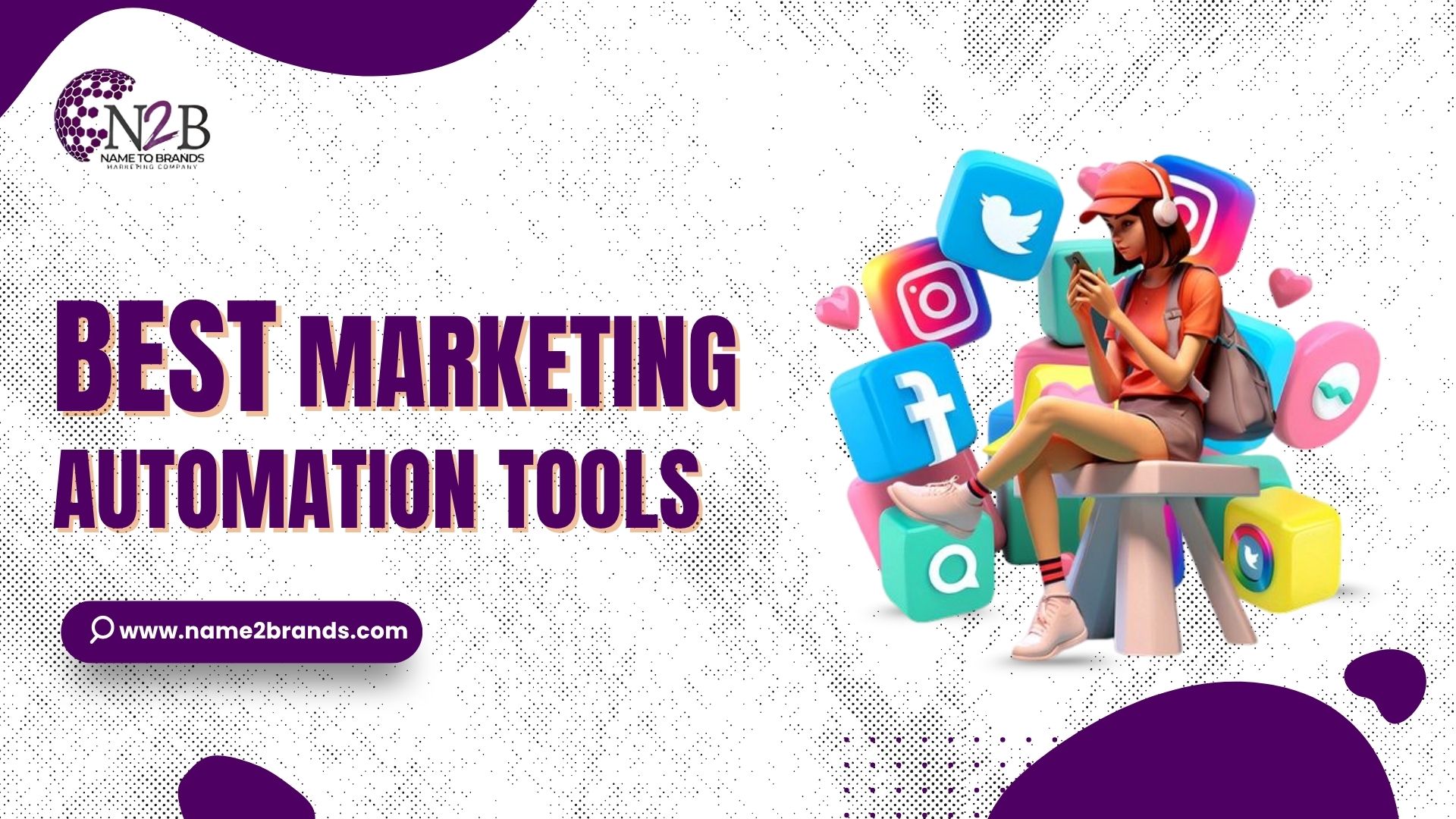In today’s high-speed digital world, businesses can no longer afford to waste time on manual, repetitive tasks. That’s why Best Marketing Automation Tools have become more than just a buzzword; they’re now the backbone of smarter, more strategic marketing efforts.
But people are still confused, thinking automation is just about scheduling social posts or auto-sending emails. In reality, Best Marketing Automation Tools transform how your entire marketing and sales ecosystem functions. Whether you’re a startup or a scaled enterprise, understanding the true depth of automation is the key to unlocking growth, efficiency, and a far better customer experience.
Let’s break down what automation really does and why the benefits are too big to ignore.
1. Lead Nurturing That Actually Works
Lead nurturing is often the main reason why businesses use the best marketing automation tools, and it makes sense. Instead of sending the same message to everyone, automation helps you connect with leads based on what they do, what they like, and how much they engage with your content.

You can create flexible processes that change in real-time. For example, if someone clicks on a pricing page or downloads a guide, they will automatically receive related information.
Another useful feature of the best marketing automation tools is lead scoring. This helps you focus on the most interested prospects while moving less interested leads into slower follow-up stages. When a lead reaches a specific score, it can be automatically moved to the next step in the sales process. This way, you avoid sorting through leads manually and reduce the chances of missing out on good opportunities.
2. Aligning Sales and Marketing, Seamlessly
The separation between sales and marketing has consistently posed a challenge, yet the most effective marketing automation tools are successfully narrowing that divide.

Through shared dashboards, automated alerts, and real-time lead tracking, both teams remain coordinated. When a lead is deemed qualified, the sales team receives immediate notifications, often accompanied by a record of the content they have engaged with. This ensures that the lead is educated and prepared for more in-depth discussions.
This teamwork improves conversion rates and facilitates a more seamless brand experience for customers.
3. Data That Actually Means Something
Have you ever tried analyzing marketing performance using disconnected spreadsheets and guesswork? It can be exhausting and often leads to incorrect conclusions.

The best marketing automation tools consolidate your data into actionable insights, allowing you to quickly see:
– Which campaigns are performing best
– What content engages potential leads
– Where users are dropping off in the sales funnel
Additionally, you’ll gain behavioral insights by tracking clicks, page visits, downloads, and in-app actions. This Best Marketing Automation Tools enables marketers to refine their strategies based on actual data rather than assumptions.
4. Smarter Personalization Across Channels
Customers today expect personalized experiences, and the best marketing automation tools make this scalable. You can segment your audience by geography, purchase history, behavior, or intent, and deliver tailored messages via email, SMS, and social ads.

From product recommendations to regretting abandoned carts and re-engaging past leads, Best Marketing Automation Tools streamlines personalization. Best of all, these interactions feel timely and personal, enhancing engagement and customer loyalty.
5. Keeping the Lights On 24/7
The internet is always active, and your marketing should be too.
Once your workflows are live, the best marketing automation tools continue to work around the clock. Whether it’s sending a welcome sequence, offering a post-purchase upsell, or requesting feedback, your brand remains engaged with users even when your team is offline.

This constant online presence helps you to:
– Capture more leads during non-traditional hours
– Convert interest into action while it’s still fresh
– Free your team from repetitive tasks, allowing them to focus on strategy
How the Best Marketing Automation Tools Fix Customer Journeys & Build Loyalty
Most customers don’t drop off because your product is bad; they leave due to friction in the journey, like missed follow-ups or clunky checkouts. The Best Marketing Automation Tools help identify and fix these weak points using A/B testing and behavior-triggered flows, optimizing every touch-point before leads slip away. But automation isn’t just about efficiency, it’s about building relationships. From personalized messages like birthday discounts to loyalty perks and product tips, these tools help brands stay consistent and human. By delivering timely, thoughtful interactions, the Best Marketing Automation Tools turn casual buyers into loyal consumers.
Conclusion;
Best Marketing Automation Tools are no longer optional; they’re essential. They don’t just save time; they make your marketing smarter, faster, and more customer-focused.
From intelligent lead nurturing to real-time data, from personalized journeys to 24/7 engagement, these tools remove the guesswork and let you focus on strategy.
If your goal is to grow faster, connect better, and convert more, the smartest first step is investing in Best Marketing Automation Tools. Let automation handle the repetitivetasks so your team can focus on what truly moves the needle.
FAQ
- What are CRM and marketing automation tools?
CRM (Customer Relationship Management) tools help manage customer interactions, track sales, and store data.
Marketing automation tools automate repetitive marketing tasks like emails, lead nurturing, and audience segmentation to improve efficiency and engagement.
- Is Zapier a marketing automation tool?
Yes, partially.
Zapier is a workflow automation tool that connects apps and automates tasks (like syncing leads from a form to your CRM). While not a full marketing suite, it plays a key role in marketing automation workflows.
- How to automate a marketing strategy?
- Set clear goals(lead gen, engagement, conversions)
- Map your customer journey
- Use marketing automation tools(like HubSpot, ActiveCampaign, or Mailchimp)
- Create automated workflows(emails, SMS, lead scoring, retargeting)
- Monitor, test, and optimize regularly
- What is the best software for automation?
Top tools include:
- HubSpot– All-in-one CRM + marketing
- ActiveCampaign– Email & CRM automation
- Mailchimp– Easy email automation
- Zapier– App-to-app automation
- Marketo– Enterprise-level marketing automation
The best choice depends on your business size and needs.

